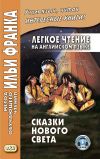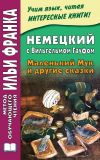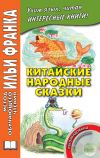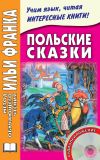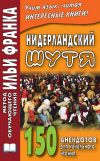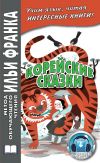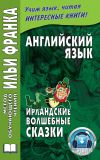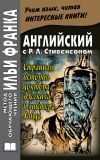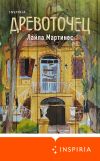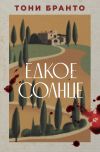Текст книги "Английский с Шерлоком Холмсом. Человек с рассеченной губой / Arthur Conan Doyle. Sherlock Holmes"
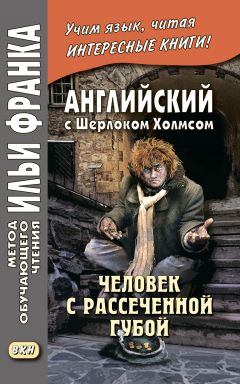
Автор книги: Артур Дойл
Жанр: Иностранные языки, Наука и Образование
Возрастные ограничения: +16
сообщить о неприемлемом содержимом
Текущая страница: 16 (всего у книги 21 страниц)
“But with no very good result (но результат не очень хороший),” I remarked (заметил я). “His conduct was certainly not very gracious (его поведение определенно было не слишком любезно).”
“Ah, Watson,” said Holmes, smiling (сказал Холмс, улыбаясь), “perhaps you would not be very gracious either (быть может, вы тоже были бы не слишком любезны), if, after all the trouble of wooing and wedding (если бы после всех хлопот, связанных с ухаживанием и со свадьбой; to woo – ухаживать; свататься; добиваться руки /девушки/), you found yourself deprived in an instant of wife and of fortune (обнаружилось, что вы вмиг лишились и жены, и состояния). I think that we may judge Lord St. Simon very mercifully (я думаю, мы можем судить лорда Сент-Саймона очень мягко = должны быть к лорду снисходительны) and thank our stars that we are never likely to find ourselves in the same position (и благодарить судьбу: «наши звезды» за то, что, вероятно, никогда не окажемся в том же положении). Draw your chair up (подвиньте кресло поближе) and hand me my violin (и передайте мне скрипку), for the only problem we have still to solve (так как у нас осталась нерешенной только одна проблема) is how to while away these bleak autumnal evenings (как нам коротать эти унылые осенние вечера; bleak – холодный, промозглый; унылый, мрачный).”
paternal [pǝ'tɜ:n(ǝ)l], gracious ['ɡreɪʃǝs], autumnal [ɔ:'tʌmn(ǝ)l]
“His letters were to be forwarded to 226 Gordon Square; so thither I travelled, and being fortunate enough to find the loving couple at home, I ventured to give them some paternal advice and to point out to them that it would be better in every way that they should make their position a little clearer both to the general public and to Lord St. Simon in particular. I invited them to meet him here, and, as you see, I made him keep the appointment.”
“But with no very good result,” I remarked. “His conduct was certainly not very gracious.”
“Ah, Watson,” said Holmes, smiling, “perhaps you would not be very gracious either, if, after all the trouble of wooing and wedding, you found yourself deprived in an instant of wife and of fortune. I think that we may judge Lord St. Simon very mercifully and thank our stars that we are never likely to find ourselves in the same position. Draw your chair up and hand me my violin, for the only problem we have still to solve is how to while away these bleak autumnal evenings.”
The beryl coronet[2]2
Coronet – корона /пэров/; диадема.
[Закрыть]
(Берилловая диадема)
“Holmes,” said I as I stood one morning in our bow-window looking down the street (сказал я, стоя однажды утром у окна и глядя на улицу; bow-window – полукруглое окно; окно с выступом; bow – дуга), “here is a madman coming along (какой-то сумасшедший идет/появился; to come along – /неожиданно/ приходить). It seems rather sad that his relatives should allow him to come out alone (очень печально, что родные позволяют ему ходить одному).”
My friend rose lazily from his armchair (мой друг лениво поднялся с кресла) and stood with his hands in the pockets of his dressing-gown (и встал /у меня за спиной/, засунув руки в карманы халата), looking over my shoulder (глядя через мое плечо). It was a bright, crisp February morning (было ясное морозное февральское утро; crisp – хрустящий; бодрящий, свежий), and the snow of the day before still lay deep upon the ground (и вчерашний снег лежал толстым слоем на земле), shimmering brightly in the wintry sun (ярко сверкая на зимнем солнце; to shimmer – мерцать; блестеть). Down the centre of Baker Street it had been ploughed into a brown crumbly band by the traffic (на середине Бейкер-Стрит колеса превратили его в бурую рыхлую полосу; to plough – пахать; бороздить, рассекать; plough – плуг; crumbly – крошащийся; рассыпчатый, рыхлый; to crumble up – раскрошить, растолочь, растереть /в порошок/; traffic – движение; транспорт), but at either side and on the heaped-up edges of the foot-paths (но по краям /дороги/ и у пешеходных дорожек с сугробами по бокам; foot-path – пешеходная дорожка; тротуар; to heap up – сваливать в кучу, нагромождать; edge – кромка, край; грань, граница) it still lay as white as when it fell (он по-прежнему был таким же белым, как будто только выпал). The gray pavement had been cleaned and scraped (серый тротуар очистили; to clean – чистить; to scrape – скоблить, скрести, чистить), but was still dangerously slippery (но все же было опасно скользко; to slip – скользить), so that there were fewer passengers than usual (так что пешеходов: «пассажиров» было меньше, чем обычно). Indeed, from the direction of the Metropolitan Station no one was coming (/по направлению/ от станции подземки никто не приближался) save the single gentleman whose eccentric conduct had drawn my attention (кроме одного джентльмена, чье эксцентричное поведение и привлекло мое внимание).
relatives ['relǝtɪvz], plough [plaʋ], eccentric [ɪk'sentrɪk]
“Holmes,” said I as I stood one morning in our bow-window looking down the street, “here is a madman coming along. It seems rather sad that his relatives should allow him to come out alone.”
My friend rose lazily from his armchair and stood with his hands in the pockets of his dressing-gown, looking over my shoulder. It was a bright, crisp February morning, and the snow of the day before still lay deep upon the ground, shimmering brightly in the wintry sun. Down the centre of Baker Street it had been ploughed into a brown crumbly band by the traffic, but at either side and on the heaped-up edges of the foot-paths it still lay as white as when it fell. The gray pavement had been cleaned and scraped, but was still dangerously slippery, so that there were fewer passengers than usual. Indeed, from the direction of the Metropolitan Station no one was coming save the single gentleman whose eccentric conduct had drawn my attention.
He was a man of about fifty (это был мужчина лет пятидесяти), tall (высокий), portly (полный), and imposing (внушительный), with a massive, strongly marked face (с широким лицом, покрытым оспинами; to mark – отмечать, ставить знак, метку; оставлять шрам, рубец; иметь родимые пятна; marked – отмеченный, помеченный; пестрый /о масти/) and a commanding figure (и представительной фигурой). He was dressed in a sombre yet rich style (он был одет неброско, но богато; sombre, somber – мрачный; темный /о цвете/), in black frock-coat (черный сюртук), shining hat (блестящий цилиндр), neat brown gaiters (изящные коричневые гетры; neat – аккуратный, опрятный; изящный), and well-cut pearl-gray trousers (и хорошо скроенные жемчужно-серые брюки). Yet his actions were in absurd contrast to the dignity of his dress and features (однако его действия совсем не соответствовали достоинству его одежды и внешности: «были абсурдной противоположностью его…»), for he was running hard (он бежал со всех ног), with occasional little springs (то и дело подскакивая; spring – прыжок, скачок: to take a spring – прыгнуть; occasional – случающийся время от времени, иногда, редко), such as a weary man gives (как утомленный человек) who is little accustomed to set any tax upon his legs (мало привыкший давать ногам нагрузку; tax – налог, пошлина; бремя, испытание; чрезмерное требование). As he ran he jerked his hands up and down (на бегу он размахивал руками: «дергал руки вверх и вниз»; jerk – резкое движение, рывок, толчок; судорожное подергивание), waggled his head (мотал головой), and writhed his face into the most extraordinary contortions (и его лицо искажалось самыми удивительными гримасами: «и корчил лицо в самые необыкновенные искривления»; to writhe – корчиться, извиваться; исказить /лицо/; contortion – искривление; искажение).
“What on earth can be the matter with him (что же это с ним такое; on earth: «на земле» – же, просто, только, все-таки /для усиления/: how on earth – каким же образом)?” I asked. “He is looking up at the numbers of the houses (он смотрит на номера домов).”
“I believe that he is coming here (думаю, он направляется сюда),” said Holmes, rubbing his hands (сказал Холмс, потирая руки).
“Here?”
figure ['fɪɡǝ], sombre ['sɒmbǝ], writhed [raɪðd]
He was a man of about fifty, tall, portly, and imposing, with a massive, strongly marked face and a commanding figure. He was dressed in a sombre yet rich style, in black frock-coat, shining hat, neat brown gaiters, and well-cut pearl-gray trousers. Yet his actions were in absurd contrast to the dignity of his dress and features, for he was running hard, with occasional little springs, such as a weary man gives who is little accustomed to set any tax upon his legs. As he ran he jerked his hands up and down, waggled his head, and writhed his face into the most extraordinary contortions.
“What on earth can be the matter with him?” I asked. “He is looking up at the numbers of the houses.”
“I believe that he is coming here,” said Holmes, rubbing his hands.
“Here?”
“Yes; I rather think he is coming to consult me professionally (да, думаю, он спешит, чтобы проконсультироваться со мной профессионально = получить совет специалиста). I think that I recognize the symptoms (узнаю симптомы). Ha! did I not tell you (прав я был или нет: «разве я вам не говорил»)?”
As he spoke, the man, puffing and blowing (при этих его словах незнакомец, тяжело и шумно дыша), rushed at our door and pulled at our bell (кинулся к нашей двери и /стал/ дергать колокольчик) until the whole house resounded with the clanging (пока весь дом не огласился звоном; clang – лязг, звон, бряцание, резкий металлический звук; to resound – громко звучать, раздаваться; оглашаться /with/).
A few moments later he was in our room (через минуту он уже был в нашей комнате), still puffing, still gesticulating (все еще тяжело дыша и жестикулируя), but with so fixed a look of grief and despair in his eyes (но в его глазах застыл такой горестный и отчаянный взгляд) that our smiles were turned in an instant to horror and pity (что наши улыбки тотчас превратились в тревогу и жалость = уступили место тревоге и жалости). For a while he could not get his words out (некоторое время он не мог вымолвить ни слова), but swayed his body and plucked at his hair like one (только раскачивался: «раскачивал свое тело» и дергал себя за волосы, как человек) who has been driven to the extreme limits of his reason (доведенный до пределов разума = до грани сумасшествия). Then, suddenly springing to his feet (вдруг он бросился вперед; to spring to one's feet – вскочить на ноги), he beat his head against the wall with such force (и ударился головой о стену с такой силой) that we both rushed upon him and tore him away to the centre of the room (что мы оба кинулись к нему и оттащили его на середину комнаты). Sherlock Holmes pushed him down into the easy-chair (Холмс усадил его в мягкое кресло) and, sitting beside him, patted his hand (и, сев рядом, похлопал его по руке) and chatted with him in the easy, soothing tones (и заговорил с ним так мягко, успокаивающе: «в тех легких/непринужденных, успокаивающих тонах»; to chat – непринужденно болтать, беседовать, разговаривать) which he knew so well how to employ (как он очень хорошо умел: «как он очень хорошо умел использовать»; to employ – употреблять, применять, использовать).
symptom ['sɪmptǝm], gesticulating [ʤe'stɪkjʋleɪtɪŋ], extreme [ɪk'stri:m]
“Yes; I rather think he is coming to consult me professionally. I think that I recognize the symptoms. Ha! did I not tell you?”
As he spoke, the man, puffing and blowing, rushed at our door and pulled at our bell until the whole house resounded with the clanging.
A few moments later he was in our room, still puffing, still gesticulating, but with so fixed a look of grief and despair in his eyes that our smiles were turned in an instant to horror and pity. For a while he could not get his words out, but swayed his body and plucked at his hair like one who has been driven to the extreme limits of his reason. Then, suddenly springing to his feet, he beat his head against the wall with such force that we both rushed upon him and tore him away to the centre of the room. Sherlock Holmes pushed him down into the easy‑chair and, sitting beside him, patted his hand and chatted with him in the easy, soothing tones which he knew so well how to employ.
“You have come to me to tell your story, have you not (вы пришли ко мне, чтобы рассказать о своем деле, не так ли)?” said he. “You are fatigued with your haste (вы устали от спешки). Pray wait until you have recovered yourself (пожалуйста, придите в себя: «подождите, пока вы придете в себя»), and then I shall be most happy to look into any little problem (а потом я с радостью выслушаю вашу проблему; to look into – изучать, рассматривать) which you may submit to me (о которой вы, вероятно, хотите мне поведать; to submit – представлять на рассмотрение; предлагать /свою точку зрения и т. д./).”
The man sat for a minute or more with a heaving chest (незнакомец минуту или больше сидел, шумно, тяжело дыша: «со вздымающейся грудью»; to heave – поднимать; вздыматься, подниматься и опускаться /обычно в каком-либо ритме; о волнах, груди и т. п./; тяжело дышать), fighting against his emotion (борясь с волнением). Then he passed his handkerchief over his brow (затем он провел платком по лбу), set his lips tight (сжал губы; tight – сжатый, сжавшийся, тесный, плотный), and turned his face towards us (и повернулся к нам).
“No doubt you think me mad (вы, конечно, думаете, что я сумасшедший)?” said he.
“I see that you have had some great trouble (я вижу, что у вас случилась большая беда),” responded Holmes (ответил Холмс).
“God knows I have (так и есть, видит Бог)! – a trouble which is enough to unseat my reason (беда, которой достаточно, чтобы потерять рассудок; to unseat – ссаживать, сталкивать с места; сбрасывать /всадника/; выбивать из седла), so sudden and so terrible is it (настолько она неожиданная и страшная). Public disgrace I might have faced (публичный позор я мог бы вынести; to face – смело смотреть в лицо /например, опасности/; не избегать, не уклоняться /от чего-либо/), although I am a man whose character has never yet borne a stain (хотя я человек, чья репутация никогда не несла ни единого пятна /позора/ = хотя репутация моя безупречна). Private affliction also is the lot of every man (личное несчастье, в общем-то, случается с каждым: «также доля каждого»); but the two coming together (но и то, и другое), and in so frightful a form (да еще в такой страшной форме), have been enough to shake my very soul (это потрясло меня до /глубины/ души: «этого было достаточно, чтобы потрясти самую мою душу»). Besides, it is not I alone (кроме того, это касается не только одного меня). The very noblest in the land may suffer (одна из знатнейших /персон/ в стране может пострадать) unless some way be found out of this horrible affair (если не будет найден какой-нибудь выход из этого ужасного инцидента).”
fatigued [fǝ'ti:ɡd], handkerchief ['hæŋkǝʧɪf], although [ɔ:l'ðǝʋ]
“You have come to me to tell your story, have you not?” said he. “You are fatigued with your haste. Pray wait until you have recovered yourself, and then I shall be most happy to look into any little problem which you may submit to me.”
The man sat for a minute or more with a heaving chest, fighting against his emotion. Then he passed his handkerchief over his brow, set his lips tight, and turned his face towards us.
“No doubt you think me mad?” said he.
“I see that you have had some great trouble,” responded Holmes.
“God knows I have! – a trouble which is enough to unseat my reason, so sudden and so terrible is it. Public disgrace I might have faced, although I am a man whose character has never yet borne a stain. Private affliction also is the lot of every man; but the two coming together, and in so frightful a form, have been enough to shake my very soul. Besides, it is not I alone. The very noblest in the land may suffer unless some way be found out of this horrible affair.”
“Pray compose yourself, sir (прошу вас, успокойтесь, сэр; to compose – составлять; улаживать /ссору, разногласия/; успокаивать),” said Holmes, “and let me have a clear account of who you are (и ясно скажите мне = расскажите, кто вы) and what it is that has befallen you (и что с вами случилось; to befall – приключаться, происходить, случаться, совершаться).”
“My name (мое имя),” answered our visitor (ответил наш посетитель), “is probably familiar to your ears (возможно, знакомо вам: «вашему слуху»). I am Alexander Holder, of the banking firm of Holder Stevenson (я Александр Холдер из банка «Холдер и Стивенсон»), of Threadneedle Street (на Треднидл-Стрит; Threadneedle Street – Треднидл-Стрит /улица в лондонском Сити, на которой находится несколько крупных банков, в том числе Английский банк/).”
The name was indeed well known to us (имя действительно было нам хорошо известно) as belonging to the senior partner in the second largest private banking concern in the City of London (как принадлежащее старшему компаньону второго крупнейшего банковского концерна лондонского Сити; the City – Сити /исторический центр Лондона; один из крупнейших финансовых и коммерческих центров/). What could have happened, then (что же такое могло произойти), to bring one of the foremost citizens of London to this most pitiable pass (что привело одного из виднейших граждан Лондона в такое жалкое состояние; foremost – передовой; выдающийся; pity – жалость; pass – ущелье; перевал; дорога сквозь трудно проходимые места; стечение обстоятельств, сложившаяся ситуация, /критическое/ положение)? We waited, all curiosity (мы ждали с нетерпением), until with another effort he braced himself to tell his story (пока Холдер еще одним усилием /воли/ взял себя в руки и /начал/ рассказывать свою историю; brace – связь; скоба; скрепа; to brace – связывать, скреплять; охватывать; to brace oneself – собираться с духом, концентрироваться).
account [ǝ'kaʋnt], concern [kǝn'sɜ:n], curiosity [,kjʋ (ǝ)rɪ'ɒsǝtɪ]
“Pray compose yourself, sir,” said Holmes, “and let me have a clear account of who you are and what it is that has befallen you.”
“My name,” answered our visitor, “is probably familiar to your ears. I am Alexander Holder, of the banking firm of Holder Stevenson, of Threadneedle Street.”
The name was indeed well known to us as belonging to the senior partner in the second largest private banking concern in the City of London. What could have happened, then, to bring one of the foremost citizens of London to this most pitiable pass? We waited, all curiosity, until with another effort he braced himself to tell his story.
“I feel that time is of value (понимаю, что время очень ценно; value – ценность),” said he; “that is why I hastened here (вот почему я поспешил сюда) when the police inspector suggested that I should secure your cooperation (как только инспектор полиции предложил заручиться вашей поддержкой; to secure – обеспечивать безопасность; получать, приобретать). I came to Baker Street by the Underground (я добрался до Бейкер-Стрит подземной железной дорогой; Underground – Подземная железная дорога /официальное название лондонского метро/) and hurried from there on foot (и оттуда бежал; on foot – пешком; to hurry – спешить), for the cabs go slowly through this snow (так как кебы движутся медленно по такому снегу). That is why I was so out of breath (вот почему я так запыхался), for I am a man who takes very little exercise (ведь я человек, который очень мало двигается; exercise – упражнение, тренировка; физическая зарядка, моцион, прогулки: to take exercise – делать моцион, гулять; делать гимнастику). I feel better now (теперь я чувствую себя лучше), and I will put the facts before you as shortly and yet as clearly as I can (я изложу вам факты так коротко и вместе с тем так ясно, как только смогу).
“It is, of course, well known to you (вам, конечно, хорошо известно) that in a successful banking business as much depends upon our being able to find remunerative investments for our funds (что в успешном банковском деле многое зависит как от способности находить прибыльные капиталовложения для наших средств = выгодно вкладывать средства) as upon our increasing our connection and the number of our depositors (так и от расширения клиентуры, увеличения числа вкладчиков; connection – связь; клиентура, покупатели; deposit – вклад в банке; депозит). One of our most lucrative means of laying out money is in the shape of loans (один из наших наиболее прибыльных способов инвестировать средства: «тратить деньги» – выдача ссуд), where the security is unimpeachable (при самых надежных гарантиях; security – безопасность; обеспечение; гарантия, залог; unimpeachable – безупречный; безукоризненный). We have done a good deal in this direction during the last few years (мы многое сделали в этом направлении за последние несколько лет), and there are many noble families (существует множество знатных семейств) to whom we have advanced large sums (которым мы предоставили огромные ссуды; to advance money on securities – предоставить ссуду под ценные бумаги) upon the security of their pictures, libraries, or plate (под залог их картин, библиотек, сервизов; plate – тарелка, блюдо; столовое серебро; металлическая посуда /серебряная или золотая/: the family plate included… – среди фамильного серебра были…).
exercise ['eksǝsaɪz], remunerative [rɪ'mju:nǝrǝtɪv], unimpeachable [,ʌnɪm'pi:ʧǝb(ǝ)l]
“I feel that time is of value,” said he; “that is why I hastened here when the police inspector suggested that I should secure your cooperation. I came to Baker Street by the Underground and hurried from there on foot, for the cabs go slowly through this snow. That is why I was so out of breath, for I am a man who takes very little exercise. I feel better now, and I will put the facts before you as shortly and yet as clearly as I can.
“It is, of course, well known to you that in a successful banking business as much depends upon our being able to find remunerative investments for our funds as upon our increasing our connection and the number of our depositors. One of our most lucrative means of laying out money is in the shape of loans, where the security is unimpeachable. We have done a good deal in this direction during the last few years, and there are many noble families to whom we have advanced large sums upon the security of their pictures, libraries, or plate.
“Yesterday morning I was seated in my office at the bank (вчера утром я сидел в своем кабинете в банке) when a card was brought in to me by one of the clerks (когда один из клерков принес мне визитную карточку). I started when I saw the name (я вздрогнул, увидев имя), for it was that of none other than (так как это был не кто иной, как) – well, perhaps even to you I had better say no more than that it was a name (впрочем, пожалуй, даже вам я скажу лишь: «мне лучше сказать не больше, чем», что это имя) which is a household word all over the earth (известное всему миру; household word – повседневное, хорошо знакомое слово, выражение) – one of the highest, noblest, most exalted names in England (/имя/ одной из самых высокопоставленных и знатных особ Англии; exalted – высокий; благородный; высокопоставленный; высокий /о положении, сане/). I was overwhelmed by the honor (я был ошеломлен /оказанной мне/ честью) and attempted, when he entered, to say so (и попытался, когда он вошел, сказать об этом), but he plunged at once into business with the air of a man (но он сразу перешел к делу с видом человека; to plunge – погружать/ся/; окунать/ся/; пускаться /во что-либо/, начинать /что-либо/) who wishes to hurry quickly through a disagreeable task (который желает побыстрее разобраться с неприятной ситуацией; to hurry through – делать наспех, наскоро; task – задача, задание; урок).
“'Mr. Holder,' said he, 'I have been informed that you are in the habit of advancing money (мне сообщили, что вы предоставляете ссуды; to be in the habit of doing something – иметь привычку делать что-либо).'
“'The firm does so when the security is good (наша фирма дает ссуды под надежные гарантии),' I answered (ответил я).
clerk [klɑ:k], exalted [ɪɡ'zɔ:ltɪd], overwhelmed [,ǝʋvǝ'welmd]
“Yesterday morning I was seated in my office at the bank when a card was brought in to me by one of the clerks. I started when I saw the name, for it was that of none other than – well, perhaps even to you I had better say no more than that it was a name which is a household word all over the earth – one of the highest, noblest, most exalted names in England. I was overwhelmed by the honor and attempted, when he entered, to say so, but he plunged at once into business with the air of a man who wishes to hurry quickly through a disagreeable task.
“'Mr. Holder,' said he, 'I have been informed that you are in the habit of advancing money.'
“'The firm does so when the security is good,' I answered.
“'It is absolutely essential to me (мне совершенно необходимы),' said he, 'that I should have 50,000 pounds at once (пятьдесят тысяч фунтов, и немедленно). I could, of course, borrow so trifling a sum ten times over from my friends (конечно, я мог бы одолжить сумму в десять раз больше, чем этот пустяк, у своих друзей), but I much prefer to make it a matter of business (но предпочитаю сделать это в деловом порядке; matter of business – деловой вопрос) and to carry out that business myself (и самому заниматься этим делом; to carry out – выполнять, осуществлять). In my position you can readily understand (вы легко можете понять, что в моем положении) that it is unwise to place one's self under obligations (неблагоразумно вмешивать сюда кого-то постороннего: «ставить себя под обязательства = в положение обязанного /кому-либо/»; under obligation – обязанный сделать что-либо, связанный /обязательствами, договором/).'
“'For how long, may I ask, do you want this sum (могу я спросить, на какой срок вам нужна эта сумма)?' I asked.
“'Next Monday I have a large sum due to me (в следующий понедельник мне вернут крупную сумму; due to – из-за, обусловленный; принадлежащий, причитающийся), and I shall then most certainly repay what you advance (и тогда я непременно погашу вашу ссуду), with whatever interest you think it right to charge (с уплатой любого процента, который вы сочтете нужным запросить). But it is very essential to me that the money should be paid at once (но для меня очень важно получить деньги сразу).'
essential [ɪ'senʃ(ǝ)l], prefer [prɪ'fɜ:], advance [ǝd'vɑ:ns]
“'It is absolutely essential to me,' said he, 'that I should have 50,000 pounds at once. I could, of course, borrow so trifling a sum ten times over from my friends, but I much prefer to make it a matter of business and to carry out that business myself. In my position you can readily understand that it is unwise to place one's self under obligations.'
“'For how long, may I ask, do you want this sum?' I asked.
“'Next Monday I have a large sum due to me, and I shall then most certainly repay what you advance, with whatever interest you think it right to charge. But it is very essential to me that the money should be paid at once.'
“'I should be happy to advance it without further parley from my own private purse (я был бы счастлив сразу же дать вам ссуду из своих личных средств; parley – переговоры; without further parley – без долгих разговоров; purse – кошелек; деньги, денежные средства; the public purse – казна),' said I, 'were it not that the strain would be rather more than it could bear (если бы эта нагрузка не была больше того, что я могу перенести = однако эта слишком крупная для меня сумма). If, on the other hand (с другой стороны, если), I am to do it in the name of the firm (я сделаю это от имени фирмы), then in justice to my partner I must insist that (тогда, отдавая должное своему компаньону, я вынужден настаивать на том), even in your case, every businesslike precaution should be taken (чтобы, даже в вашем случае, были приняты все меры деловой предосторожности).'
“'I should much prefer to have it so (я бы охотно предпочел, чтобы это было так = ну разумеется, о чем речь),' said he, raising up a square, black morocco case (сказал он и взял квадратный футляр из черного сафьяна) which he had laid beside his chair (который перед тем положил возле своего стула). 'You have doubtless heard of the Beryl Coronet (вы, несомненно, слышали о берилловой диадеме)?'
“'One of the most precious public possessions of the empire (это одно из ценнейших сокровищ, достояние империи; possessions – собственность; имущество),' said I.
purse [pɜ:s], precaution [prɪ'kɔ:ʃ(ǝ)n], beryl ['berɪl], precious ['preʃǝs]
“'I should be happy to advance it without further parley from my own private purse,' said I, 'were it not that the strain would be rather more than it could bear. If, on the other hand, I am to do it in the name of the firm, then in justice to my partner I must insist that, even in your case, every businesslike precaution should be taken.'
“'I should much prefer to have it so,' said he, raising up a square, black morocco case which he had laid beside his chair. 'You have doubtless heard of the Beryl Coronet?'
“'One of the most precious public possessions of the empire,' said I.
“'Precisely (совершенно верно).' He opened the case (он открыл футляр), and there, imbedded in soft, flesh-colored velvet (и в нем на мягком бархате телесного цвета; to imbed – вставлять, врезать, вделывать), lay the magnificent piece of jewellery which he had named (лежало великолепное произведение ювелирного искусства, о котором он говорил). 'There are thirty-nine enormous beryls (в диадеме тридцать девять огромных бериллов),' said he, 'and the price of the gold chasing is incalculable (а ценность золотой оправы неизмерима; chasing – чеканка; гравировка; резная работа; to calculate – вычислять, исчислять). The lowest estimate would put the worth of the coronet at double the sum which I have asked (по самой минимальной оценке диадема стоит вдвое больше суммы, запрошенной мной). I am prepared to leave it with you as my security (я готов оставить ее у вас в качестве залога).'
“I took the precious case into my hands (я взял драгоценный футляр в руки) and looked in some perplexity from it to my illustrious client (и в некотором недоумении/замешательстве перевел взгляд с него на моего именитого клиента).
Правообладателям!
Это произведение, предположительно, находится в статусе 'public domain'. Если это не так и размещение материала нарушает чьи-либо права, то сообщите нам об этом.